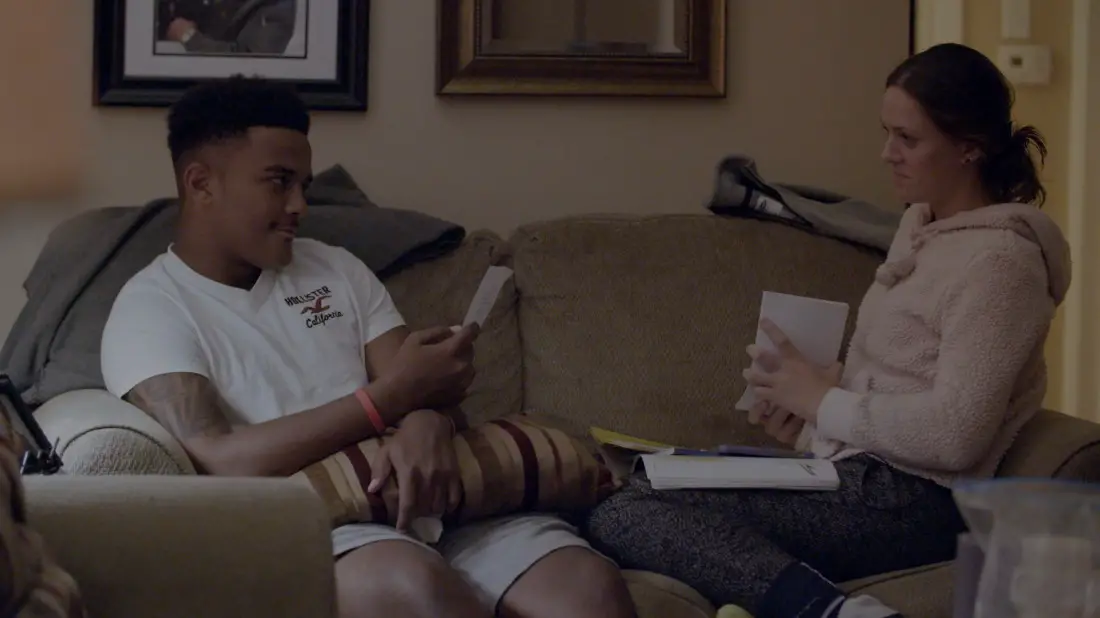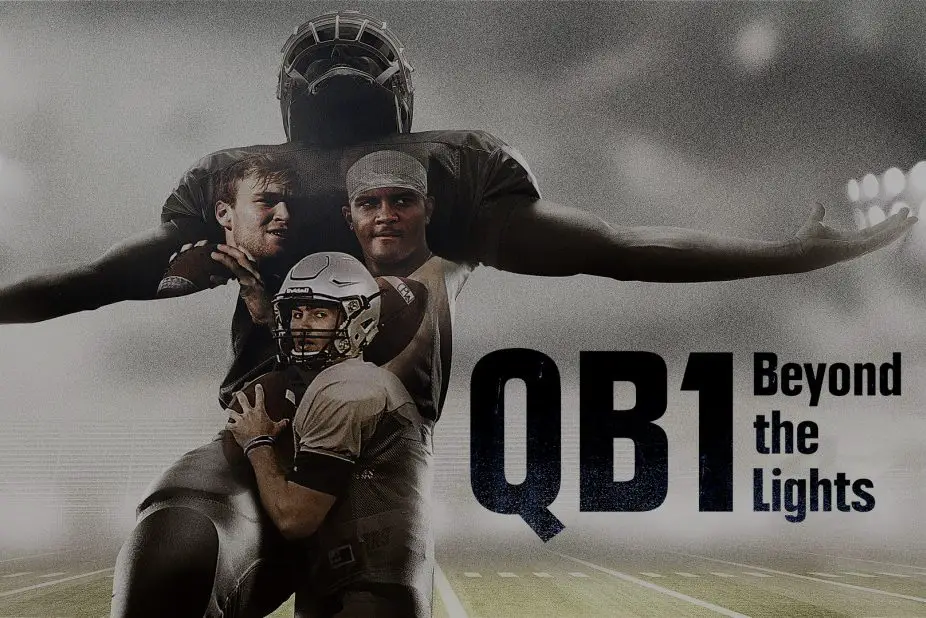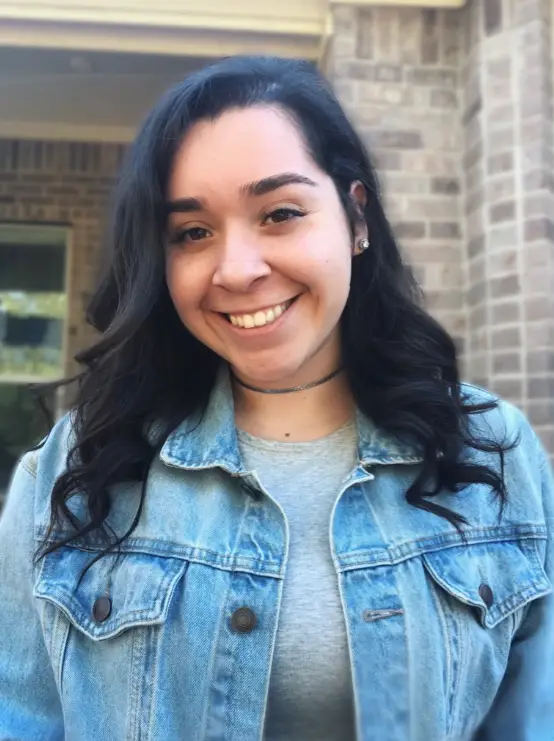If you live for Friday night lights, tailgates and counting down the days until your favorite team takes the field again, “QB1: Beyond the Lights” is your next show to binge. But the docuseries isn’t similar to other mainstream football series, such as “Friday Night Lights” or “Last Chance U,” that offer stereotypical sideline drama.
The docuseries, which is featured exclusively on Go90, follows the top three high school quarterbacks in the nation, documenting their every move through the last season of their high school career.
“Friday Night Lights” in 2018
As a die-hard football fan, I have been notoriously guilty of binging sports-related dramas in hopes of them satisfying the empty feeling inside me of post-football-season depression.
While looking for my next show to fill the void, I discovered that the executive producer of “QB1: Beyond the Lights,” Peter Berg, also produced the hit series “Friday Night Lights.”
Given that it was Berg’s name that initially caught my attention, and considering the immense success he had with his early 2000s drama, I expected to see a Jason Street or Tim Riggins replica and a handful of scripted lines in the pilot season to ensure that the docuseries lived up to Berg’s first success.
Although the docuseries went another direction in its focus, the show managed to focus on the athletes’ daily practices and allowed viewers a first-hand perspective on what leads up to suiting up on Friday nights.
Season one featured Ohio States’ projected starting quarterback for 2018 Tate Martell and Georgia’s Jake Fromm, a freshman who would go on to lead the Bulldogs to an NCAA championship appearance.
The show follows a handful of top prospects but hones in on the individual challenges each high school quarterback faces during their senior year.
As local celebrities, the teenagers are accustomed to life in the spotlight. However, with cameras documenting their every move, the subtleties of their lives and the realities of their sport come to the surface with a vividness that has rarely before been captured.
Prior to binging “QB1: Beyond the Lights,” I knew about the process through which universities extend offers to athletes and the lengths recruiters often go to in order to obtain a verbal commitment.
However, as intense as D1 programs portray themselves, the docuseries showed that recruiting the best starts before most of these quarterbacks even enter high school.
Even after an athlete commits to a school, other universities do not shy away; instead, the student’s verbal commitment only begins a competition similar to a bidding war between the universities.
Despite the numerous opportunities these athletes have created for themselves, the lengths these parents go to in order to get more exposure and playing time for them is surprising at times.
For example, Martell’s and Bowers’ parents did not hesitate to pick up and move their families almost overnight to start at some of the most elite private schools.
However, masked in the shadows of the stadium lights are the pressures associated with being QB1. Being a teammate, leader, brother and a friend are all roles these prospects must learn to balance while keeping up with their schoolwork.
Balancing all these roles seems like an impossible task. Yet, through both seasons, it is clear that these responsibilities come just as naturally to the athletes as their talents.
Even though I was (and still might be) obsessed with the never-ending drama “Friday Night Lights” provides, the docu-series did not lack in this area.
Although it may not be have been as much of a rollercoaster as Lyla and Jason Street’s on-again, off-again relationship, its uncut and unfiltered behaviors shown by the athletes provided the reality most docu-series lack. “QB:1 Beyond the Lights” showcased the athletes for who they really are: teenagers.
In struggling to keep up with all their responsibilities, the show conveys the pressures these athletes face to please everyone. The demands of these athletes are extreme; some coaches forbid them to have relationships for fear of distraction and parents keep strict routines to ensure their children stay on track to success.

Despite the often extreme structure, “QB1: Beyond the Lights” allows viewers to relate to the teenagers as they take part in everyday high school activities. Whether it be a homecoming game, a birthday party or obsessing over their appearance, the show balances the athlete’s personal lives along with their dedication to the sport.
Hardships and relatability
The beauty of the series is how authentic each individual is; none of the athletes ever hold themselves to superior positions than their teammates, despite their unavoidable success.
In season one, Tate Martell did not shy away from cameras and allowed his confident attitude to lead his team to multiple wins and a championship at the end of the season. Bowers also allowed viewers to be a part of his playbook when he dealt with the loss of his father.
By bravely approaching this difficult situation, he became a role model for his teammates and his brother. Throughout the season, the docu-series provides an uncommon conclusion: seeing these top prospects overcome their greatest obstacles, once deemed as impossible at the beginning of the season.
It is refreshing to watch these relatable, upcoming high-profile athletes in their journeys to success. Through all the blood, injuries and hardships associated with the sport, the show is incomparable to others in conveying its message that these athletes are just normal teenagers.
After watching the entire two seasons nonstop in succession, I came to a stark realization. Although athletes are on a pedestal, they’re not perfect. “QB1: Beyond the Lights” is sure to be a success. Better yet, with its free streaming platform, it allows everyone a chance to see that athletes face the similar hardships as the rest of us.

















